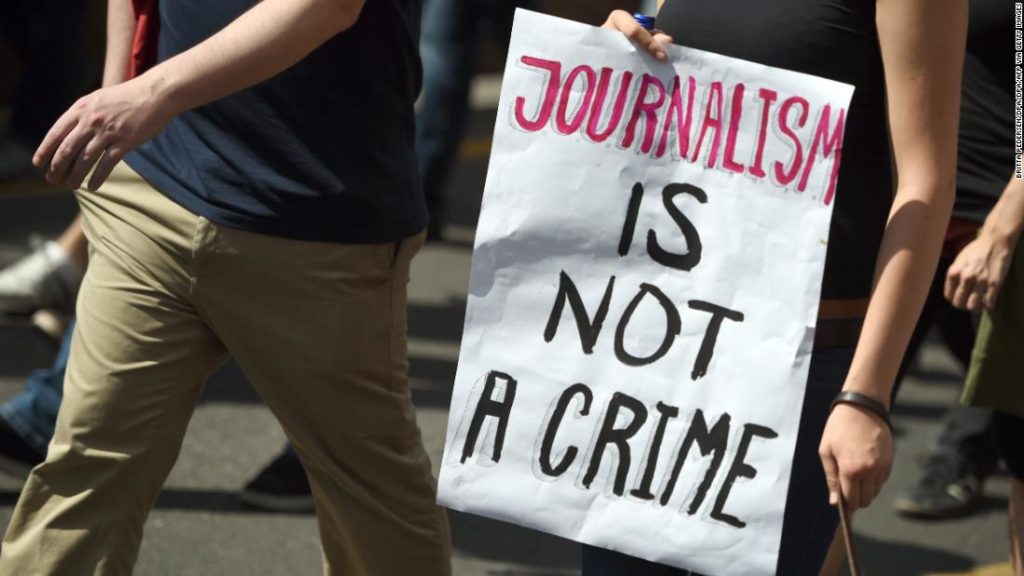The world watched transfixed in November as many of the American journalists who had been belittled and threatened by President Donald Trump and his supporters reported on the US election, explaining, fact checking, and ultimately playing their role as an institution of democracy.
This year, for the fifth consecutive year, at least 250 journalists were imprisoned around the globe, according to the Committee to Protect Journalists (CPJ).
There is a sense though that this abnormal moment in time — where the bullying and threatening of journalists on US soil is encouraged and the threatening and killing of them abroad is ignored — is coming to an end.
I hope that’s true but I don’t think it is. The reality is autocrats around the world are going to continue to target the free press until there are consequences for doing so.
In Yemen, we have had our visa application in limbo for four months. Since September, you can count on one hand the number of visas that have been issued to news outlets. Foreign journalists have not been granted access by the Saudi-backed official government in months, and while they block foreign press, local journalists are being targeted with impunity.
When we reached out for comment, the Yemeni government did not respond to our requests and a Saudi coalition spokesperson told us they were “not involved in the application.”
Why does any of this matter? Because what you — the viewer, the reader, the voter — think matters. When you care, leaders act and if we can’t tell you what’s going on, then you can’t care.
In Yemen, thousands of people could already be in famine and we wouldn’t know.
Where we are blocked from doing our job, people suffer. If you don’t care about them, then care about you.
You should care whether the next US administration supports and reinforces journalism at home and abroad. Whether it uses its outsize presence on the world stage to call out those who block our access, intimidate and detain us.
But it isn’t enough to promise to uphold journalistic freedoms at home. We need a commitment that the new administration will support them abroad.
As the world continues to tackle the Covid-19 pandemic, it shouldn’t be ignored that the virus is believed to have initially spread in China, a country that closely controls the press, at a time when the sitting US President was telling the nation not to believe the press.
How differently would the world have responded if journalists had been able to report the true extent of the virus in China sooner? We’ll never know.
That is what we risk when journalists are barred from doing their jobs, we risk secrets making us all sick. We are not above criticism and you don’t have to like us, but just let us do our jobs.
You may also like
-
UK coronavirus variant has been reported in 86 countries, WHO says
-
NASA technology can help save whale sharks says Australian marine biologist and ECOCEAN founder, Brad Norman
-
California Twentynine Palms: Explosives are missing from the nation’s largest Marine Corps base and an investigation is underway
-
Trump unhappy with his impeachment attorney’s performance, sources say
-
Lunar New Year 2021: Ushering in the Year of the Ox

